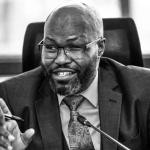Rwanda and the Democratic Republic of Congo have drafted a peace agreement, slated for formal signing on June 27, 2025, in Washington, D.C. The agreement addresses ongoing tensions by including a cessation of hostilities, joint security mechanisms, and disarmament of armed groups, particularly concerning the M23 rebellion and accusations against Rwanda.
Washington, D.C. – June 18, 2025
Rwanda and the Democratic Republic of Congo (DRC) have initialed a draft peace agreement to potentially end decades of conflict in eastern Congo. The formal signing, brokered by the United States and Qatar, is scheduled for June 27, 2025, in Washington, D.C., marking a significant step toward regional stability.
Key Provisions of the Agreement
The agreement, reached after three days of intensive negotiations between technical teams from both countries, includes several landmark provisions:
Cessation of Hostilities: Both nations commit to a prohibition of hostilities and respect for each other’s territorial integrity.
Joint Security Mechanism: Establish a joint security mechanism to prevent violence and monitor compliance.
Disarmament and Reintegration: Provisions for the disengagement, disarmament, and conditional reintegration of non-state armed groups, including the M23 and FDLR.
Humanitarian Access: Returning refugees and displaced persons with better humanitarian access.
Economic Integration: Regional economic integration fosters cross-border trade and investment.
Context: The M23 Offensive and Accusations Against Rwanda
The peace agreement comes after a dramatic escalation in violence at the start of 2025, when the M23 rebel group—allegedly backed by Rwanda—launched a lightning offensive, capturing the key cities of Goma and Bukavu in eastern DRC and setting up governing structures in the areas under its control. Thousands have been killed and displaced, and the region’s rich mineral resources have fueled both conflict and illicit trade.
DR Congo has long accused Rwanda of providing military support to the M23, a claim supported by multiple United Nations and U.S. experts. UN reports have documented Rwandan support for M23 operations, including training, equipping, and direction. Consequently, Kinshasa severed diplomatic ties with Rwanda in January 2025.
Rwanda, for its part, has consistently denied supporting the M23 and maintains that its military presence in eastern DRC is purely defensive, aimed at countering the FDLR—a Hutu rebel group formed by perpetrators of the 1994 Rwandan genocide, which Kigali says continues to threaten its security. Rwanda’s foreign ministry has called for “defensive measures” and criticized “misguided or manipulative” statements about its role in the conflict.
- Quotes and Perspectives
DR Congo Government: “We are committed to peace, but it must be based on respect for our sovereignty and the withdrawal of all foreign forces,” said a senior Congolese official. - Rwanda Government: “Rwanda’s priority is the security of our people. We are ready to work with our neighbors to end the cycle of violence, provided our legitimate security concerns are addressed,” stated a Rwandan spokesperson.
- U.S. Mediation: “This agreement is the result of constructive dialogue on political, security, and economic interests. We hope it will bring lasting peace and unlock the region’s economic potential,” said a U.S. State Department official.
Regional and International Involvement
Qatar, which has been mediating separate talks between the DRC and M23 since April, participated as an observer in the Washington negotiations to ensure alignment between different peace initiatives. The United States, meanwhile, has positioned itself as a key broker, with Secretary of State Marco Rubio set to witness the formal signing in Washington.
What It Means Going Forward
The initialing of the Rwanda-DRC peace agreement is a watershed moment for the Great Lakes region, but its true test lies ahead. If implemented, the deal could end one of Africa’s longest-running conflicts, restore diplomatic relations, and stabilize a region that has suffered decades of violence and displacement.
Humanitarian Impact: Ending hostilities and improving aid access could enable displaced people to return home and rebuild their lives, a vital step in healing war-torn communities.
Regional Stability: The establishment of a joint security mechanism and the disarmament of armed groups could prevent future flare-ups and reduce cross-border tensions. However, previous ceasefires have collapsed, and distrust remains high. The continued presence of armed groups and unresolved security concerns pose significant challenges.
Mineral Investments: The peace agreement opens the door to billions in Western investment in the DRC’s vast mineral wealth, including cobalt, tantalum, and tin—resources critical for global technology and energy transitions. The deal’s economic integration framework could transform the region into a hub for legal, transparent mining and processing, reducing the role of illicit trade and armed groups in the sector.
The Rwanda-DRC peace agreement, slated for signing on June 27, 2025, in Washington, D.C., presents an opportunity for lasting peace, humanitarian aid, and economic development in the Great Lakes region. Its success hinges on the commitment of both nations, cooperation from armed groups, and continued international support. This agreement's fulfillment could signal a new beginning for the region.
Leave a comment
Your email address will not be published. Required fields are marked *





